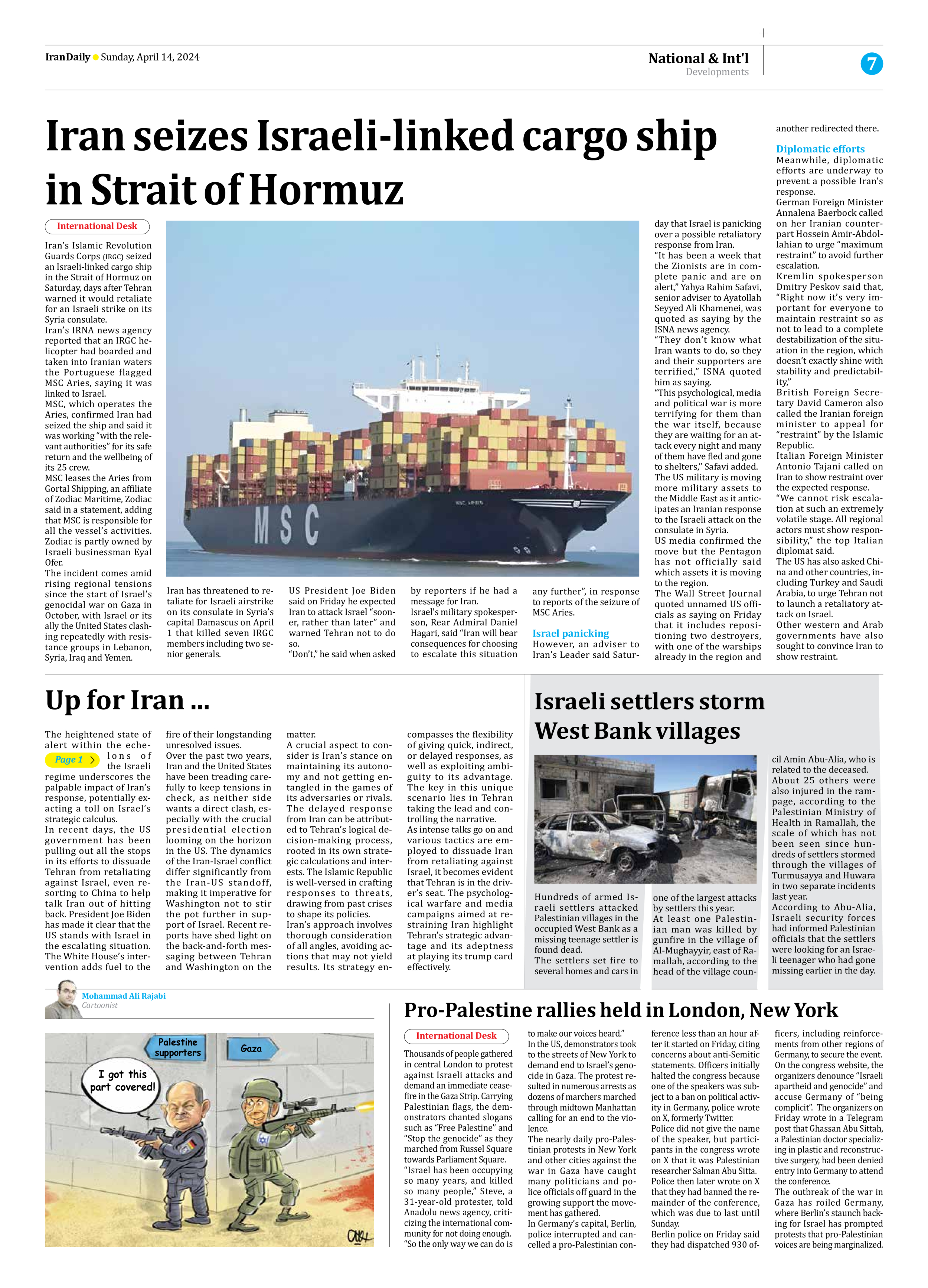
Up for Iran ...
Page 1
The heightened state of alert within the echelons of the Israeli regime underscores the palpable impact of Iran’s response, potentially exacting a toll on Israel’s strategic calculus.
In recent days, the US government has been pulling out all the stops in its efforts to dissuade Tehran from retaliating against Israel, even resorting to China to help talk Iran out of hitting back. President Joe Biden has made it clear that the US stands with Israel in the escalating situation. The White House’s intervention adds fuel to the fire of their longstanding unresolved issues.
Over the past two years, Iran and the United States have been treading carefully to keep tensions in check, as neither side wants a direct clash, especially with the crucial presidential election looming on the horizon in the US. The dynamics of the Iran-Israel conflict differ significantly from the Iran-US standoff, making it imperative for Washington not to stir the pot further in support of Israel. Recent reports have shed light on the back-and-forth messaging between Tehran and Washington on the matter.
A crucial aspect to consider is Iran’s stance on maintaining its autonomy and not getting entangled in the games of its adversaries or rivals. The delayed response from Iran can be attributed to Tehran’s logical decision-making process, rooted in its own strategic calculations and interests. The Islamic Republic is well-versed in crafting responses to threats, drawing from past crises to shape its policies.
Iran’s approach involves thorough consideration of all angles, avoiding actions that may not yield results. Its strategy encompasses the flexibility of giving quick, indirect, or delayed responses, as well as exploiting ambiguity to its advantage. The key in this unique scenario lies in Tehran taking the lead and controlling the narrative.
As intense talks go on and various tactics are employed to dissuade Iran from retaliating against Israel, it becomes evident that Tehran is in the driver’s seat. The psychological warfare and media campaigns aimed at restraining Iran highlight Tehran’s strategic advantage and its adeptness at playing its trump card effectively.







